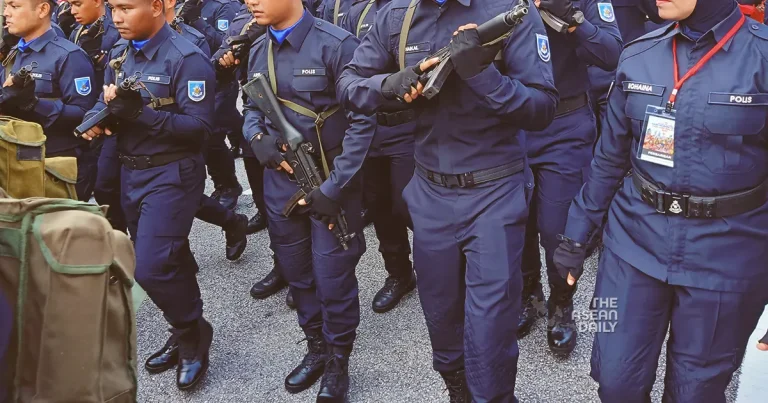17-1-2024 (KUALA LUMPUR) The Malaysian police force is facing a series of scandals, including allegations of rape against one officer, which has drawn attention to the effectiveness of the Independent Police Conduct Commission (IPCC), an independent body responsible for investigating complaints against the police. However, critics argue that even the IPCC lacks the necessary powers to address these issues.
On January 10, Malaysian Home Minister Saifuddin Nasution Ismail announced the appointment of five members to the IPCC, leaving two spots vacant. The commission has the authority to initiate investigations in the public interest without relying on external reports or referrals.
Despite this, analysts and activists have criticized the IPCC, describing it as “toothless” due to its limited powers. Dr. Nik Ahmad Kamal Nik Mahmood, an expert in law from the International Islamic University Malaysia (IIUM), explained that the IPCC lacks the authority to discipline police officers found guilty of misconduct. Instead, it can only recommend punishments to the police force commission, leaving the final decision and action to the police disciplinary committee.
Malaysian lawyer Edmund Bon echoed this sentiment, stating that the IPCC primarily serves as a referral commission. He highlighted that the previously proposed Independent Police Complaints and Misconduct Commission (IPCMC) had more substantial powers and a direct enforcement mandate. However, due to objections from the police force, the IPCMC was watered down into the current IPCC.
Mr. Bon emphasized the need for the IPCC to win public support, suggesting that the remaining two members should come from civil society and have experience working with communities. He also stressed that the police must take the IPCC’s recommendations seriously and portray a friendly, clean, and progressive image to regain public trust.
The IPCC chairman position will be filled by Zolkopli Dahlan, former director-general of the implementation coordination unit of the Prime Minister’s Department (PMD). The deputy chairman spot will be taken by Mohamad Jazamuddin Ahmad Nawawi, former PMD advisory board chief director. Other commission members include Tan Kang Sai, a former senior director of the Malaysian Anti-Corruption Commission (MACC); Shukri Abdullah, former deputy director of the Royal Malaysia Police logistics and technology department; and Martina @ Kartina Zamhari, former director of the national audit department (financial sector).
When questioned about the delayed appointment of the remaining two members, Minister Saifuddin Nasution Ismail stated that the ministry was meticulously searching for candidates with outstanding records and appropriate expertise for these positions.
Dr. Nik Ahmad suggested that the IPCC should consider appointing former judges as members to enhance the commission’s credibility. He emphasized the importance of the police disciplinary committee taking strong action against errant officers based on the IPCC’s recommendations.
The introduction of the IPCC Bill in August 2020, as a replacement for the IPCMC Bill proposed by the previous Pakatan Harapan (PH) government, has faced criticism for not adequately addressing police abuse of power. The IPCMC would have had the power to enforce discipline over errant officers, according to the Malaysian Bar.
Recent incidents, such as the alleged identification of a Turkish-American academic as a “terrorist” by plainclothes police officers and the arrest of two policemen for extortion and sexual assault, have raised further concerns about police misconduct. Citizen Against Enforced Disappearances (Caged), a rights group, questioned whether the IPCC would help cover up such incidents. The organization criticized the IPCC as a toothless and limbless body that fails to provide independent oversight of the police.
The IPCC officially came into force on July 1. With the appointment of the five initial members, the commission can now begin investigating complaints. However, the remaining vacancies and the limited powers of the IPCC continue to raise doubts about its effectiveness in promoting police accountability.




